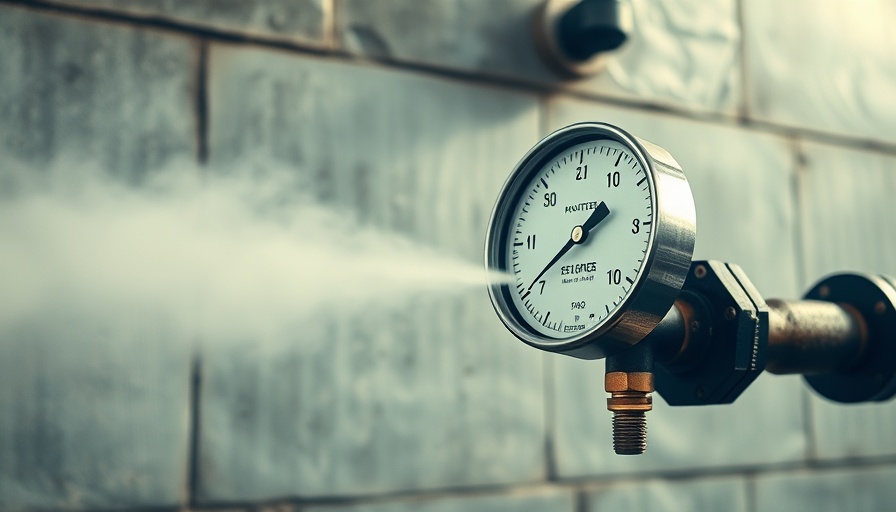
Explore the Risks of Gas Leaks in Real Estate
Natural gas has become a standard resource in numerous homes across the United States, offering energy efficiency and increased property value. However, the associated risks cannot be overlooked. According to recent studies, emergency responders are now handling more than 125,000 gas leak calls every year, a staggering increase of 25% since 2007. For real estate agents, understanding these risks becomes vital in ensuring client safety and property integrity.
Understanding the Signs of a Gas Leak
Gas leaks are often silent and deadly, making awareness crucial for homeowners and renters alike. Detecting a gas leak can be as simple as noticing certain signs. Here are primary indicators to watch for:
- Install a Gas Leak Detector: These devices effectively alert you to hazardous gas accumulations. Positioning them near sleeping areas is wise for added protection.
- Smell for Rotten Eggs: When natural gas escapes, a chemical called mercaptan adds a distinctive odor reminiscent of rotten eggs. If you detect such an odor, investigate immediately.
- Listen for Hissing Sounds: Gas leaks might emit a faint, hissing sound, especially near appliances or pipelines.
- Observe Your Vegetation: A sudden decline in plant health around appliances may indicate a gas leak.
What to Do If You Suspect a Gas Leak
Responding quickly to suspected gas leaks can mitigate potential hazards. When a gas leak is suspected, evacuate the premises immediately and call emergency services. It's critical not to use any electronic devices, as sparks could ignite gas. Familiarizing yourself and your clients with these procedures can enhance safety and preparedness.
The Importance of Regular Maintenance
Routine maintenance of gas appliances is paramount in preventing leaks. For anyone in the real estate market, emphasizing maintenance improvements during property valuations can be persuasive in ensuring buyer confidence. Boiler check-ups, priority inspections, and maintaining vents are crucial for safe operations.
How Landlords and Homeowners Can Protect Themselves
Landlords must stay ahead of potential gas hazards. Regularly scheduled maintenance checks not only enhance tenant safety but also reduce legal liabilities. Encouraging tenants to report odd smells or sounds can help create a collaborative relationship and ensure ongoing safety measures are observed.
Safe Practices for Your Property
Understanding the dynamics of gas installations can make a significant difference, especially in investment properties. Real estate professionals should ensure that properties are equipped with the latest safety features, including both gas leak detectors and carbon monoxide detectors.
Future Perspective: Staying Informed on Gas Safety
As the real estate market continues to evolve, understanding gas safety is increasingly important. Real estate professionals should leverage emerging technologies, such as smart gas leak detectors connected to mobile apps, that notify homeowners of any issues immediately. Educating oneself on these advancements can add value to properties and provide peace of mind.
Conclusion: Prioritizing Safety in Real Estate Transactions
In an industry where safety and property integrity are paramount, understanding the implications of gas usage cannot be overstated. Whether you’re a realtor in Los Angeles or a landlord in Miami, being proactive in gas safety can not only protect lives but also enhance your professional reputation in the competitive world of real estate. For more information on the latest safety practices, stay connected with industry resources.
 Add Row
Add Row  Add
Add 




Write A Comment